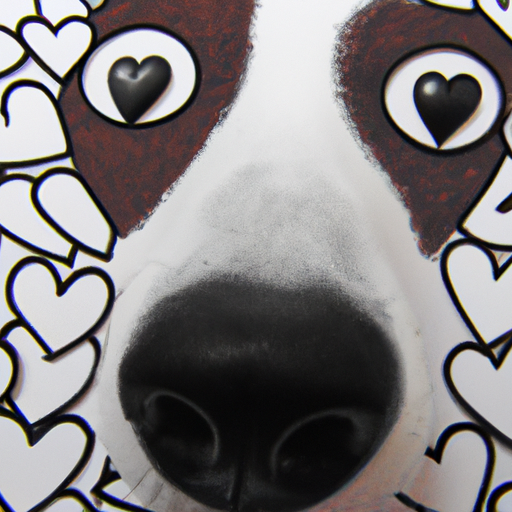Have you ever found yourself getting lost in your dog’s eyes, wondering what they’re thinking or feeling? Just like humans, dogs communicate a lot through their eyes. A common question among dog owners is, “Do dogs’ pupils dilate when they like you?” The answer is not as straightforward as a simple yes or no. Many factors come into play, such as breed, health, and environment. This article will delve into the science behind dog pupil dilation, what it means, and how it can help you better understand your furry friend’s emotions.
- Table of Contents
- Understanding Dog Pupil Dilation
- What Causes Pupil Dilation in Dogs?
- Does Dilation Indicate Affection?
- Tips for Reading Your Dog’s Eyes
-
Frequently Asked Questions
-
Key Takeaways
- Dogs’ pupils dilate for various reasons, not just as a sign of affection.
- Understanding your dog’s body language is crucial in interpreting their feelings.
- Regular vet check-ups are important to rule out any health issues causing unusual pupil dilation.
Understanding Dog Pupil Dilation
Just like humans, dogs have pupils that can change size in response to light or emotions. This process is known as pupil dilation. You may notice your dog’s pupils expand dramatically when they’re excited or shrink when they’re relaxed. But do these changes in pupil size indicate affection?
It’s important to remember that while dogs are expressive animals, their body language and physiological responses are quite different from ours. A dog’s eyes can certainly give you clues about their emotional state, but interpreting these signals requires a deep understanding of canine behavior and biology.
What Causes Pupil Dilation in Dogs?
There are several reasons why a dog’s pupils might dilate. These include:
- Light Levels: Dogs’ pupils dilate in low light to allow more light to enter the eye, helping them see better. Conversely, their pupils will constrict in bright light to protect the retina.
- Emotional Responses: Dogs’ pupils can dilate when they’re excited, scared, or focused on something. This is part of the fight-or-flight response, which allows dogs to take in more visual information and react quickly to potential threats.
- Health Issues: Certain health problems, such as brain trauma, glaucoma, or exposure to certain toxins, can also cause pupil dilation in dogs. If your dog’s pupils are consistently dilated, it’s important to consult with a veterinarian.
Does Dilation Indicate Affection?
While it’s tempting to interpret your dog’s dilated pupils as a sign of affection, it’s more likely related to excitement or focus. For example, if your dog’s pupils dilate when they see you, it could be because they’re excited to see you or are focusing on you because they want something (like food or a walk).
However, this doesn’t mean that your dog doesn’t love you. Dogs show affection in many ways, such as wagging their tails, licking you, following you around, or simply wanting to be near you. If you want to understand your dog’s feelings better, consider reading this helpful article from OneTopDog.
Tips for Reading Your Dog’s Eyes
Understanding your dog’s eye signals can help you create a stronger bond with your pet. Here are some tips:
- Pay attention to their eyes in different situations. Are their pupils dilated when they’re playing? What about when they’re resting?
- Look at their overall body language. Are they relaxed and wagging their tail, or are they stiff and alert?
- Regular vet check-ups can help rule out any health issues causing abnormal pupil dilation.
- Consider consulting with a canine behaviorist. They can provide valuable insights into your dog’s body language and emotions.
Frequently Asked Questions
1. Can I tell if my dog likes someone by looking at their pupil dilation?
It’s possible that a dog’s pupils will dilate when they’re excited to see someone, but it isn’t a surefire indicator of affection.
2. My dog’s pupils are always dilated. Should I be worried?
Constant dilation can be a sign of several health issues, so it’s best to consult with a vet.
3. Can different breeds have different pupil dilation responses?
Yes, breeds can vary in their eye shapes and sizes, which can influence how much their pupils dilate.
For more information on understanding your dog’s behavior and emotions, check out these articles from OneTopDog: “Understanding Your Dog’s Body Language” (https://www.onetopdog.com/dog-body-language/), “How to Tell If Your Dog Loves You” (https://www.onetopdog.com/dog-love-signs/), and “Understanding Your Dog’s Fear Response” (https://www.onetopdog.com/dog-fear-response/).
In conclusion, while your dog’s pupils may dilate when they see you, it’s not necessarily a sign of affection. However, by understanding your dog’s body language and physiological responses, you can create a stronger bond with your furry friend. Remember, love for a dog isn’t just in their eyes, but in their wagging tails, excited barks, and the joy they show when they’re with you.



